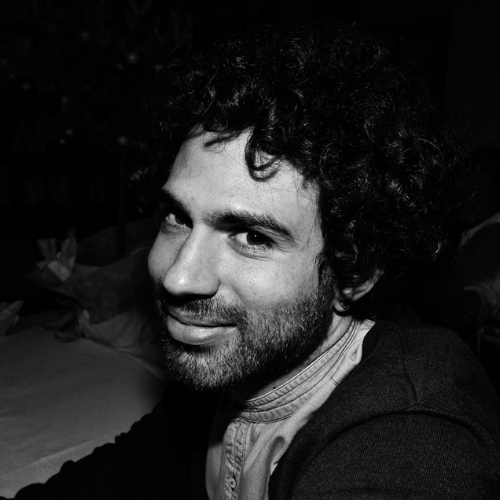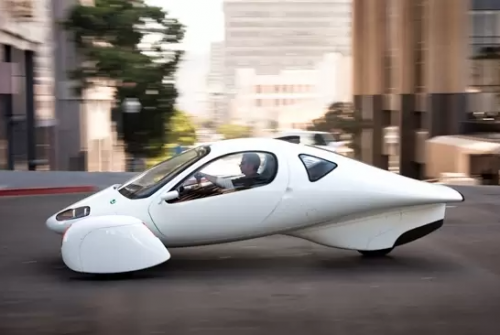Industrial automation is transforming: training is the key to success
18 September 2019 | Written by Thomas Ducato
The Academy of Comau, a world leader in the field of industrial automation, makes its skills available to carry out training programs aimed at different targets and age groups, preparing young people, professionals and managers for the future

The fourth industrial revolution brings with it great potential, but also some risks. In particular, great concern is linked to the loss of jobs, a fear already experienced with the previous technological revolutions. History teaches us that these transformations are not necessarily negative: it is necessary, however, to change the economic models and work on knowledge and skills fundamental for the world of work of the future.
Lifelong learning and soft skills, the recipe for success. A study of the Word Economic Forum of 2018 states that from 75 million jobs eliminated, another 133 million will be created. A positive balance, therefore, but which makes a paradigm shift necessary: many of the new jobs will be linked to professions that do not even exist today, educational qualifications and knowledge acquired in the past will no longer be sufficient. Strong human skills and above all curiosity and a desire to never stop learning will be fundamental. In this context, in the Italian and international training horizon, a new actor comes into play as a candidate for a leading role: the company.
Comau’s example. Comau, a world leader in the field of industrial automation, firmly believes in this new role of the company, which becomes an active part of the construction of knowledge. For this reason, it has always dealt with the development of the skills of its employees through an Academy that, in recent years, has also opened up to the public by proposing training projects for different targets. We interviewed Ezio Fregnan, Director of Comau Academy, and we asked him to analyze the industrial automation sector and to focus on the value of training.
How is the industrial automation sector changing?
The industrial automation sector is changing, following a path similar to the one that has affected personal computers since the 80s: in the beginning to use a PC you had to be an expert, languages, and knowledge not common to all were needed. Over time, however, these tools have become simple and everyone today uses computers. Industrial automation is going through a similar process, becoming easy. The use of technology within industrial contexts and not only is increasingly simple and, at the same time, but also guarantees ever better performance. Furthermore, the cost of technology is falling, making it accessible. This offers numerous opportunities, improves the quality of work, the effectiveness and efficiency of production.
With these transformations, how do skills change? What does the market look for?
As with the industrial revolution, this transformation leads to a change in the world of work too. We at Comau like to summarize this change of professionalism with the term “Human Manufacturing”, which also represents our vision: we are not blinded by technological mirage, but we always put man at the center. The technologies must be around him, change his way of working. The most important skills are the technological ones, to seize the opportunities that come from innovation, but these are associated with those related to the human being, the understanding of others and their needs, to make man and machine interact profitably and in full security, as perhaps never happened before. Technological knowledge is important, but it changes quickly in this historic moment. On the contrary, some so-called “soft skills” are and will remain fundamental.
In the future, constant and quality training will be increasingly necessary. How did your Academy project come about?
For over 45 years, starting with the foundation of Comau in 1973, our Academy has been dealing with the skills of internal workers to the company, about 9 thousand employees in Italy and in the world. 5 years ago we decided to open the doors of the Academy to the public, with training activities aimed at young talents, professionals, managers, but also students and children. One element that I like to emphasize is that our activities are always carried out in collaboration with institutions or other training institutions: we believe in the value of these partnerships, which are fundamental to get the best not only from ourselves but also from the wealth of universities and professionals.
Could you talk about some of the Comau’s activities?
For those that we call young talents, we have now been offering a second-level specialist master’s degree in Manufacturing 4.0, aimed at newly graduated engineers, together with the Turin Polytechnic, to give them technical and managerial skills to be exploited in production contexts. For this target, in collaboration with the Catholic University of Milan, we have created a master’s degree course, “Innovation and Technology Management”, which is characterized by its interdisciplinary nature: the participants are engineers, physicists, psychologists, sociologists, anthropologists, economists, expression d a fundamental approach today in the company. Furthermore, we have been proposing an international Summer School for seven years, entitled “Project and People Management School”, which takes place in China, Brazil, the United States, and Italy.
For the companies, instead?
In this sector, I like to mention the Executive Master in Manufacturing Automation and Digital Transformation, which is preparing to live the third edition in January and whose registrations are open. It is a master’s degree intended for company managers who want to acquire or strengthen skills in digital transformation management and manufacturing automation. It is an international master’s, which takes place in 3 different countries and lasts 5 weeks, each dedicated to a specific module.
From company managers to students and children…
To date, the activity for the youngest has involved 15,000 children and young people, from elementary to high school. We involved them through a project called “e.DO Experience”: we created an educational robot, e.DO, and around it, we built training programs to allow young people to develop not only robotics skills but also to help them to learn the STEM disciplines and acquire those soft skills and business culture that are fundamental today. It is a way to innovate teaching and reach all students, spreading a new work culture. Following an innovative path of professional studies and the qualifying examination, we also confer the “robotics license”, an international certification already obtained by over 6 thousand children. Currently, the project, conceived by Comau, is promoted and delivered in collaboration with Pearson. This is for us the most fun but also exciting part: we see the eyes of these young people shine when they come out of the activities and our programs.
Working with such different people and targets is undoubtedly very enriching. What did you learn during these experiences with the Academy?
Our Academy exists not only to train and, through educational activities, also promote an innovative company like Comau, but also to allow us to learn, through positive contamination. We have learned and are learning a great deal, from each of the programs we have developed and from all the participants. It is not only a transfer of knowledge but a common construction of knowledge. Young people, in particular, are not only users of education but must be protagonists of innovation. Precisely for this reason, even in my last book (written with Donatella Pinto and Giuseppe Scarlatti and published by Pearson, ed), we talk about a training perimeter: a perimeter that includes “Young people, universities and companies”, which is the title of the volume. Only together can these different actors create the skills of the future.
Companies, therefore, take on a new role also in the field of training.
It is essential that companies open up to the outside and play a formative role: on the one hand there is a theme of social responsibility, on the other a need to bring to the the enormous innovation potential of the new generations lies within its perimeter.
What are your educational and training methods?
Our learning model is based on three parts: 25% of what we know we have been taught, 50% we know how to do thanks to experience, the remaining 25% comes from reports, from external models or from interactions and contaminations that we mentioned above. Comau’s programs are based on this model: the theoretical approach is and must be only a part. If the school and the traditional training system focus more on learning knowledge through teaching, we also want to push on the other two aspects, which we think are fundamental to allow people, young people in the lead, to find in advance their talents and aim for professional happiness.
Your reality operates in 14 countries. What are the differences in preparation and approaches?
What competitive advantage do the experiences of training abroad offer to participants from different countries? There are characteristics, which are part of the nature and culture of the different countries, which we must learn and make our own: by the Americans, for example, we must learn the speed and ability to execute, from the Germans the precision and punctuality, from China the culture of work and “fatigue”, as well as attention to form and not just content. In short, the multicultural approach allows us to learn the best from everyone and this promotes growth. That’s what our customers ask and the results are visible.
What advice do you feel to give to young people and on which training paths do you think it is worth focusing on for the future?
To answer, I would quote a sentence from Donatella Pinto, Head of Human Resources at Comau: “Young people, be careful. Companies are more interested in who you are than what you know. “What I feel like telling young people is to go through the chosen course of study with commitment. A path that possibly contains the technological component but also great attention to the humanistic dimension. At the same time, it is essential to devote time to experiences that can compensate for any aspects that cannot be addressed in the course of studies. Companies do not need young people shut up in their own world but people who are open to both the technological and the human dimension: active citizenship, sport, associations are all experiences that can help them to have a strong and thick identity and human dimension.





